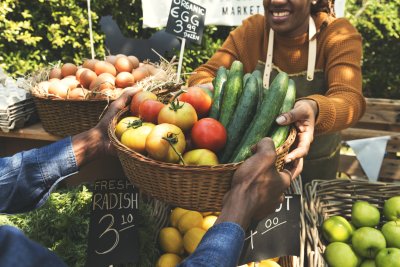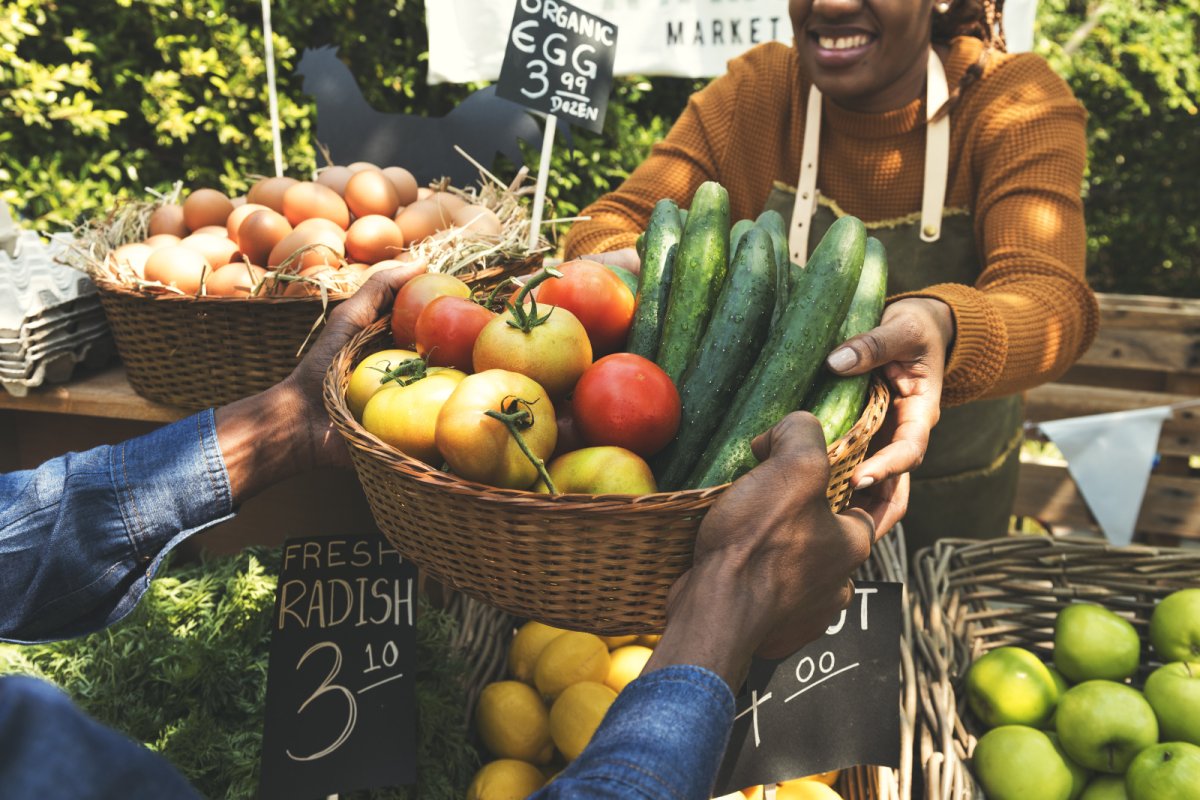 Credit: Rawpixel.com / Shutterstock
Credit: Rawpixel.com / Shutterstock
Using co-production to bridge divides in food and farming
Bridging the Gap was planned to have co-production at its heart. Here Kiloran O’Leary, following the programmes three day collaboration workshops, explains why this approach is critical to bridge the gap between food that is good for the planet and food that is affordable.
Bridging the Gap in the food system – between agroecological supply chains and people on a low income – is complex. That’s why we need people with experience from every corner of the food system to get us there. Lucy Antal, Lead for Food Justice at Feedback Global, and part of our early collaboration sums this up, saying:
“Part of Bridging the Gap’s raison d’etre is to bring people together around a very broad and wide theme. And while you have all these strands, the focus on health and the focus on sovereignty, it needs to coalesce together because otherwise nothing's going to change.”
This programme combines two core issues: the climate and nature emergency with tackling structural health inequality and drivers of poverty. Holding these intersecting concerns together requires big picture thinking from people who understand these issues. This also required a lot of thought in bringing together a group of 25 people in Bridging the Gap’s Collaboration Group, to find people to challenge assumptions and imagine the impossible.
Wondering what co-production is? Find out more
Why we're using co-production
Bridging the Gap wants to tackle the pricing issues and supply chains and will explore effective financial and policy mechanisms so people on a low income can access and afford climate and nature friendly food. We will test, explore and build evidence for this via a series of pilot projects across the four nations of the UK. The Collaboration Group set out to identify shifts we need to see in the food system and what we need to prioritise to achieve this, going beyond ‘knee jerk’ solutions.
As Ped Asgarian, Director of Feeding Bristol, reflected: “[the process is] refreshing to do because they allow you take a step back from what you're working on. They bring you back to the national picture and give a perspective which is great when you can't see the wood for the trees [because] you're working so much. I think that's invaluable”.
Over three days, 25 people with experience from across the movement and beyond came together to explore changes to the food system that could ‘bridge the gap’. Angelina Sanderson Bellamy thoughtfully facilitated the workshops in what was a huge commitment from this group (who we’re immensely grateful to). As Denise Bentley, CEO and founder of First Love Foundation noted
“Bridging the Gap won't have the same reach if we hadn't done a process like this. Now there's 25 people who are very invested in this and want to see it work.”
Not without its challenges
Understandably, with a group of people coming from such a diverse range of experiences our first challenge was to align our language. And in food and farming, where definitions can be vague or debated, this took time and arguably is not fully resolved. Those involved were passionate and dedicated to their field of work, but it was challenging but important to make sure to consider each other's differing perspectives.
Laura Stratford, Coordinator at Greater Lincolnshire Food Partnership, recounted: “Someone in one of our breakout groups was really impassioned about their perspective, which was food insecurity and what the solutions could and should be. And then it was asked – how does this bridge the gap with farmers in the room? And it didn’t. But this is the value of having people in the room from different polarities. The food system is so massive, the depth of experience and expertise must come from multiple sources. You can’t get a picture from one person.”
It is also important to acknowledge who was not in the room and what was not adequately presented. For this stage that included people with lived experience of food insecurity, who were represented by people who work with them. Equally, while we had farmers and those working with farmers present, we did not have every angle on the issues they face, particularly those who are facing transition to new approaches. And while we had people who trade and work with food traders, we could not represent a spectrum of food business. We recognise there are other perspectives to seek out, and this is just the beginning of a coproducting the programme, though every engagement we make.
The decision to run the workshops online had the benefit of engaging a wide variety of busy people together, but along with it technical glitches, bad Wifi, (que: your still muted!). More significantly we missed some of the human connection and the side conversations that occur in real life. But it meant we got amazing people from all the nations in the room. Ped acknowledged the “geographic spread and food systems spread [of the group] and availability. It's amazing to be able to get this and it's definitely because it has been online”.
Has co-production been a success?
The feat of bringing these people together over three days was a huge achievement and we has benefits beyond the programme’s remit. It's clear that diversity is a strength when looking at transformational change; using co-production has brought together a diversity of voices and perspectives helping ensure we are going in the right direction and strengthening the movement. It's pointless if we just talk in echo chambers. One participant commented:
“In all my years in the food and farming world I have never been part of such a diverse and inclusive group.”
What came through loud and clear is that Bridging the Gap is exploring an answer to a question that many people are already asking. The commitment of the Collaboration Group is testament to this. Dr Kelly Parsons, researcher of food systems and policy at University of Cambridge, noted the patience people were prepared to bring to the process: “People did it because they felt like it was important. It's very rare that I would go to a workshop over three days”. Laura reflected her experience of the workshops has “reinforced my resolve to demand that both sides of the gap are talking to each other.”
Bridging the Gap has an ambitious vision and the contributions and perspectives of the Collaboration Group have been fundamental to shaping the programme’s activity. Is it challenging to work with coproduction processes? Of course. Is it worth it and will it make our solutions better? Yes - we are confident it will and as most participants told us in the feedback they are felt 'clear about how the discussion will be used to shape the programme'. As a team we feel better enabled to take the work forward with input of this incredible group.
What next?
Over the next few months with will start our local level codesign, working with partner organisations with links to these areas and interested parties, to identify and shape pilot interventions for success. We will be building better connections with other advocating for policy and financial interventions in this area. We can’t wait to see what this all produces and to start incubating solutions to this knotty problem.
If you are involved in a coproduction or codesign process and want to share your experience or are interested in our advocacy work email bridgingthegap@sustainweb.org
Bridging the Gap: Bridging the Gap to climate and nature friendly food for all.
Sustain
The Green House
244-254 Cambridge Heath Road
London E2 9DA
020 3559 6777
sustain@sustainweb.org
Sustain advocates food and agriculture policies and practices that enhance the health and welfare of people and animals, improve the working and living environment, promote equity and enrich society and culture.
© Sustain 2024
Registered charity (no. 1018643)
Data privacy & cookies








